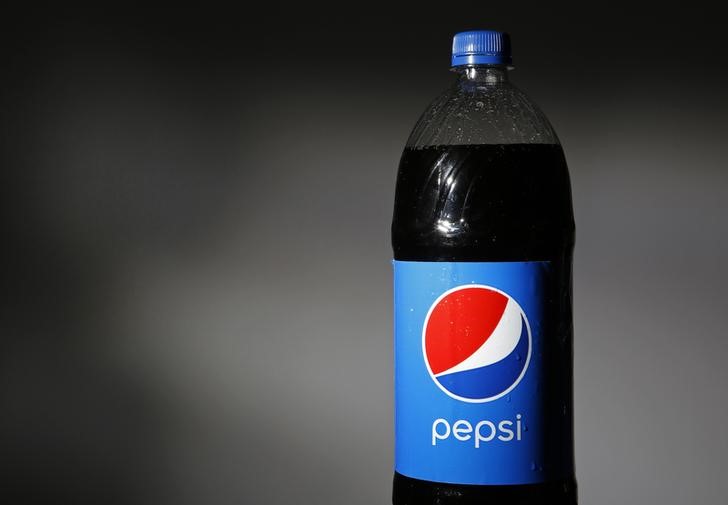On Friday, RBC Capital adjusted its price target on Pepsico (NASDAQ:PEP) shares, bringing it down slightly from $177.00 to $176.00 while maintaining a Sector Perform rating on the stock. The adjustment comes as the firm anticipates Pepsico's upcoming quarterly performance to align with recent trends, showing modest revenue growth and earnings per share (EPS) that are expected to meet or slightly exceed projections.
The analysis by RBC Capital suggests that growth for Pepsico is likely to be driven by its international business, while domestic performance remains subdued. The company's Frito-Lay division has seen a sequential improvement in volume, but the growth is not considered strong due to ongoing macroeconomic pressures. The performance of Pepsico's North American beverage unit, PBNA, is described as sluggish, and the recovery of the Quaker foods division appears to be facing challenges.
Looking ahead, RBC Capital anticipates that Pepsico may face modest pressure on its organic sales targets as a result of volume pressures in the domestic market. Despite this, the firm expects Pepsico to largely reiterate its bottom-line projections. The analysis underscores a cautious outlook for the beverage and snack giant as it navigates the current economic environment.
In other recent news, PepsiCo, the global food and beverage giant, has been making significant moves within the industry. The company has announced plans to acquire Garza Food Ventures and Siete Family Foods, both for $1.2 billion each. These acquisitions are part of PepsiCo's strategy to diversify its product range and enhance its offerings in the food sector.
Analysts have been closely monitoring these developments. Barclays, for instance, has adjusted its price target for PepsiCo due to expectations of a weakening organic sales outlook for fiscal year 2024. Meanwhile, Jefferies has lowered its target for the company while maintaining a Buy rating, citing current business challenges, particularly in the U.S. market.
Barclays and Jefferies are not alone in their assessments. Both BofA Securities and Goldman Sachs have revised their price targets for PepsiCo shares, mainly due to concerns about the company's performance in the North American market. Despite these revisions, both firms maintain their positive ratings for the company's stock.
In addition to these acquisitions and analyst revisions, PepsiCo has made significant changes in its bylaws to comply with recent U.S. Securities and Exchange Commission regulations, including the adoption of the "universal proxy card" rules. The company has also issued Senior Notes totaling $2.25 billion for general corporate purposes and increased its quarterly dividend by 7% to $1.35 per share.
InvestingPro Insights
To complement RBC Capital's analysis of PepsiCo (NASDAQ:PEP), recent data from InvestingPro offers additional context for investors. Despite the cautious outlook presented in the article, PepsiCo maintains some strong financial fundamentals. The company boasts impressive gross profit margins, with the latest data showing a gross profit margin of 54.64% for the last twelve months as of Q2 2024. This robust margin could provide a buffer against the volume pressures in the domestic market mentioned in the report.
Additionally, PepsiCo's dividend performance remains a bright spot. An InvestingPro Tip highlights that the company has raised its dividend for 51 consecutive years, demonstrating a long-standing commitment to shareholder returns. This consistent dividend growth, coupled with a current dividend yield of 3.22%, may appeal to income-focused investors even as the company faces potential challenges in organic sales growth.
However, it's worth noting that PepsiCo is trading at a high Price/Book multiple of 11.9, which aligns with RBC Capital's cautious stance. This valuation metric suggests that investors are paying a premium for the company's assets, which could be a concern if growth prospects are indeed moderating as the article suggests.
For investors seeking a more comprehensive analysis, InvestingPro offers 12 additional tips for PepsiCo, providing a deeper dive into the company's financial health and market position.
This article was generated with the support of AI and reviewed by an editor. For more information see our T&C.
